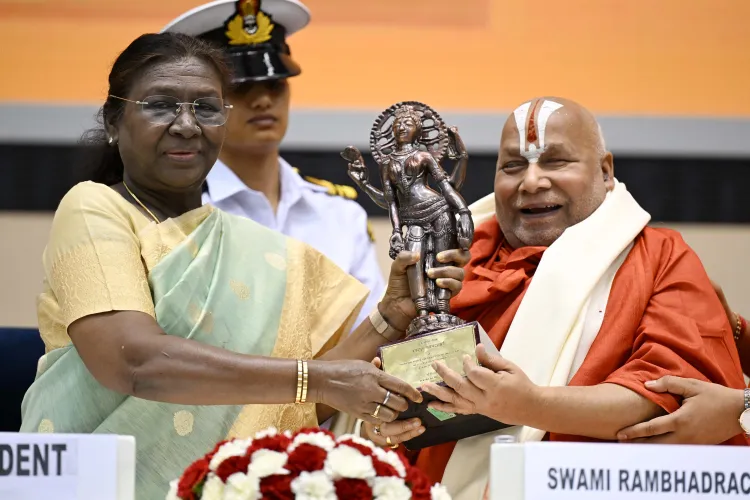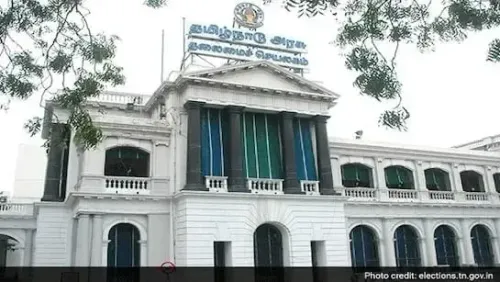Did President Murmu Honor Sanskrit Scholar Jagadguru Rambhadracharya with the 58th Jnanpith Award?

Synopsis
Key Takeaways
- President Murmu conferred the 58th Jnanpith Award to Jagadguru Rambhadracharya.
- Literature plays a vital role in societal awakening.
- Recognition of outstanding contributions to literature since 1965.
- Encouragement for women to participate in literary creation.
- Importance of drawing inspiration from historical literary figures.
New Delhi, May 16 (NationPress) President Droupadi Murmu awarded the 58th Jnanpith Award to Sanskrit scholar Jagadguru Rambhadracharya on Friday, acknowledging his significant contributions to literature and social service.
The ceremony, held at Vigyan Bhawan in New Delhi, also included heartfelt congratulations to Gulzar, another Jnanpith Award recipient who could not be present. President Murmu expressed her wishes for his continued health and well-being.
In her address, President Murmu highlighted Jagadguru Rambhadracharya as a source of inspiration, commending his diverse contributions. She noted that he has provided remarkable service to both literature and society through his profound insights.
She encouraged the next generation to draw inspiration from his illustrious life, advocating for progress in literary creation, nation-building, and social development.
President Murmu emphasized the unifying power of literature, stating, "Literature has the capacity to awaken society. From the social movements of the 19th century to our independence struggle in the 20th century, writers and poets have linked our communities. The song 'Vande Mataram' by Bankim Chandra Chattopadhyay has inspired the youth of India for nearly 150 years and will continue to do so. The works of Valmiki, Vyas, Kalidas, and eternal poets like Rabindranath Tagore resonate with the essence of a living India, reflecting the spirit of Indianness," she stated.
She also commended the Bharatiya Jnanpith Trust for recognizing exceptional authors across various Indian languages since 1965.
In her remarks, President Murmu acknowledged the contributions of female Jnanpith Award winners such as Ashapurna Devi, Amrita Pritam, Mahadevi Verma, Qurratul-Ain-Haider, Mahasweta Devi, Indira Goswami, Krishna Sobti, and Pratibha Ray, who have enriched Indian literature through their sensitive observations of society and tradition.
She urged that our sisters and daughters engage actively in literary pursuits to enhance our societal consciousness, drawing inspiration from these illustrious women authors.










